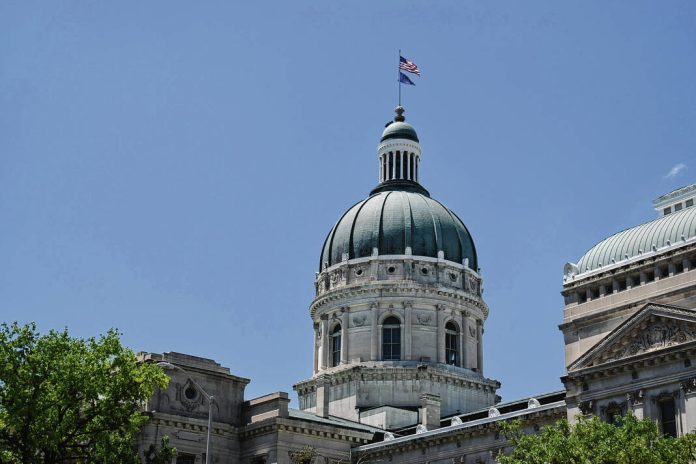A Senate tax committee on Tuesday heard — but didn’t vote on — a bill considering fetuses as dependent children for an income tax deduction.
“In full disclosure, we need to let folks know that we do not intend to move this bill this session,” Chair Travis Holdman, R-Markle, began.
Holdman, who is leading a two-year task force reviewing the state’s tax system, said he wouldn’t move “much of any” tax changes through his committee until the task force’s work has concluded.
Senate Bill 98 would enable expectant parents to submit — along with their tax returns — a radiologic imaging report confirming the pregnancy. In exchange, they’d claim a personal income tax exemption worth $1,000 and a dependent child exemption of $1,500.
The measure would cost the state about $9 million over fiscal years 2025 and 2026, according to the latest fiscal analysis by the nonpartisan Legislative Services Agency.
“How do you create a culture for life?” asked author Sen. Andy Zay, R-Huntington. “… What I like about this bill is it’s a direct benefit to the families, to those expecting mothers. It gives them that credit at the time when they most need it.”
He also suggested that, by requiring imaging as proof of pregnancy, the bill could encourage pregnant Hoosiers to access pre-natal care.
Zay, who is running to represent Indiana’s Third Congressional District in the U.S. House of Representatives, announced his plan to file the legislation last month in a campaign news release rather than from his sitting office.
His bill, however, doesn’t include guidance on miscarriages — a gap Holdman noted.
“I would like … that they would still get to claim that deduction,” Zay responded. “Having had two of those in our family, with my wife, it’s a very traumatic time.”
Lacey Davidson, a philosophy professor at the University of Indianapolis, said she feared the bill could put Hoosiers who’ve had miscarriages at risk of investigation for tax fraud.
“The implementation of this bill requires Hoosiers to submit their personal medical records with their taxes,” Davidson said. “This gross invasion of privacy to access the purported benefits of this bill cannot be written into law.”
The bill split witnesses ideologically, with largely conservative groups testifying in support.
American Family Association of Indiana leader Micah Clark said he’d Googled costs associated with childbirth and found that delivery alone could run Hoosiers thousands of dollars.
“Helping parents keep a little bit more of their money to provide for their newborns is, I think, a beneficial thing,” Clark said.
Indiana Right to Life lobbyist Jodi Smith said the organization was “excited to see parents be rewarded for having children and to be encouraged to take good care of them.”
Smith proposed an amendment requiring the state to validate pregnancy through legal documents like social security numbers or pregnancy loss through fetal death certificates.
Largely liberal opponents, meanwhile, argued the bill would encourage government overreach.
“Granting legal rights to a fetus or embryo directly or by backdoor policies … brings us one step forward towards criminalizing any behavior that seems to threaten a pregnancy,” said Elizabeth Ziff, a sociology professor at the University of Indianapolis.
Ziff said this concept of fetal personhood could place a fetus’ rights above that of the expectant parent.
Sen. Ryan Mishler, R-Mishawaka, critiqued her testimony, arguing that all government programs come with requirements.
“If you don’t want government intrusion, then don’t participate in the government programs,” he said.
Multiple witnesses said lawmakers should help Hoosier families in other ways instead: child care, food, maternal health, Medicaid reimbursements for birthing services and more.
“The bill’s attempt to incentivize pregnancy could be better put to use by addressing the overwhelming financial needs of pregnant and postpartum Hoosiers, like addressing childhood poverty,” said Jessica Louise, Indiana organizing manager for the All Options Pregnancy Resource Center.
Louise noted that nearly one in five children living in Marion County — where the Legislature meets — lives in poverty, according to the Annie E. Casey Foundation’s data center.
By Leslie Bonilla Muñiz – The Indiana Capital Chronicle is an independent, not-for-profit news organization that covers state government, policy and elections.





